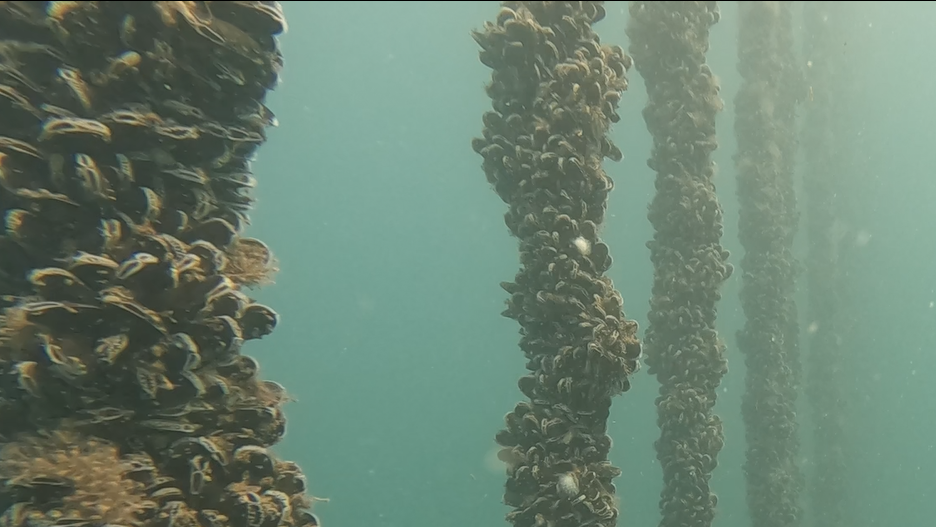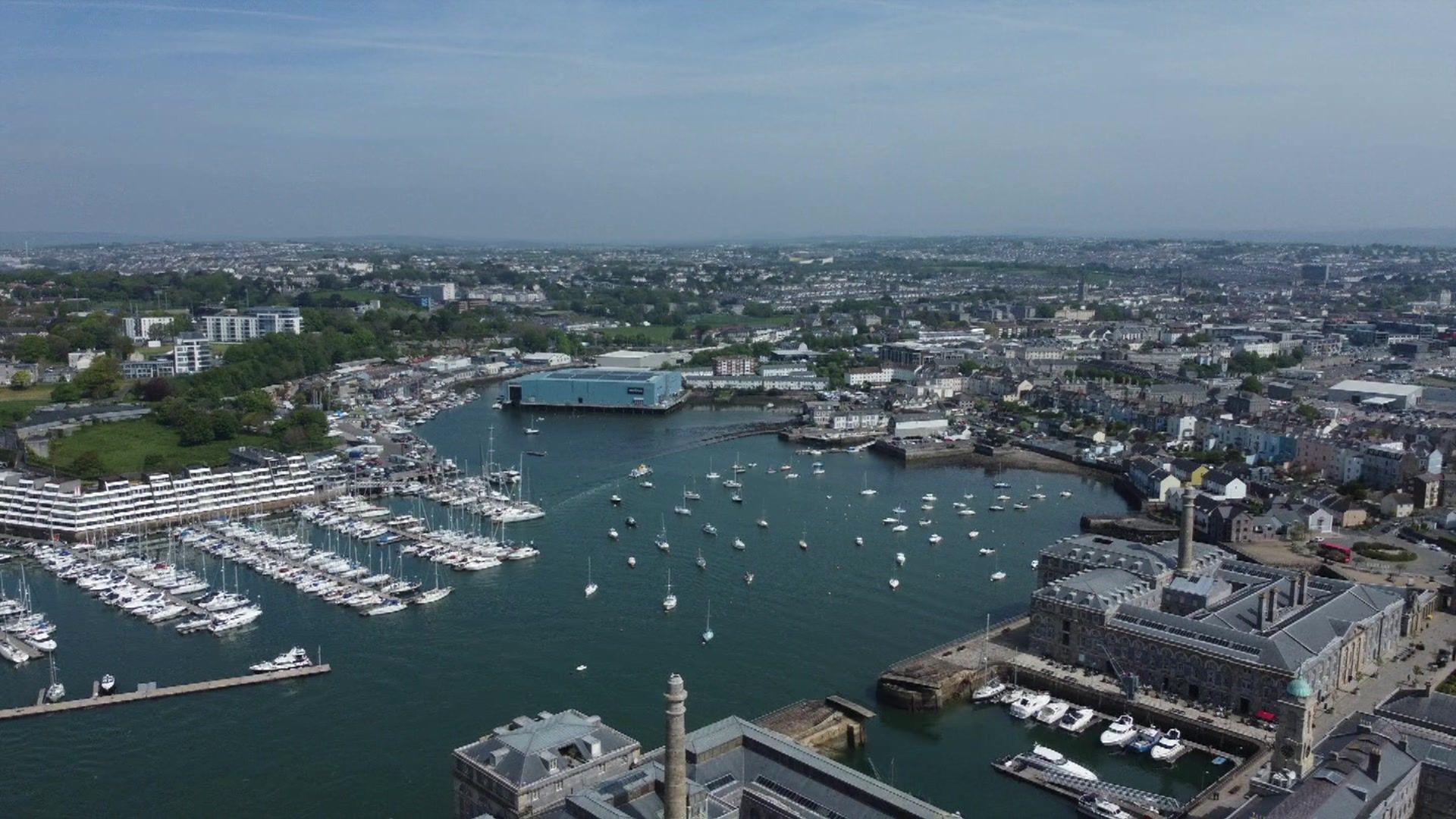Mussel farm could be reviving shellfish reef

Mussels falling from the lines of the farm may be changing the seabed in Lyme Bay
- Published
A shellfish reef in Devon that was wiped out by bottom trawling fishing could be returning thanks to a mussel farm, a new study has suggested.
The offshore mussel farm, the UK's largest, was set up in Lyme Bay off the south Devon coast in 2013.
Researchers at the University of Plymouth said during that time the seabed underneath the farm had started to undergo a transformation, changing from muddy sediment into biodiverse reefs, due to mussels falling from the lines.
They said a map from 1871 revealed the change may be a form of restoration rather than creating habitats never seen in the area before.

The French map describes a large area of the seabed stretching from Torquay to beyond Lyme Regis
The French map describes a large area of the seabed stretching from Torquay to beyond Lyme Regis as being home to "rich shell beds".
Scientists believe these were likely to have been oyster or mussel reefs that had been destroyed through the use of bottom-towed fishing gear during the 20th Century.
With such practices now banned after the designation of the Lyme Bay Marine Protected Area and the mussel farm's three sites being above the old shell beds, it is allowing the region to become home to shellfish reefs once more, researchers said.
'Really exciting'
In the study, researchers highlighted how the reefs were being used by a number of commercially important species such as lobsters and crabs.
Dr Emma Sheehan, associate professor in marine conservation and senior author on the study, said: "When we first started to monitor the mussel farm in 2013, we hoped to find evidence of its potential to restore the health of the seabed.
"That is something we have shown consistently, with new species of marine flora and fauna regularly being seen within its ropes and on the seabed.
"However, to find out that such habitats were found in the region 150 years ago is really exciting.
"It shows that the farm is not only having a positive impact on the health of the ocean now, but also returning the seabed to some semblance of its former state."
Follow BBC Devon on X (formerly Twitter), external, Facebook, external and Instagram, external. Send your story ideas to spotlight@bbc.co.uk, external.
- Published10 June 2024

- Published27 May 2024

- Published15 February 2024
